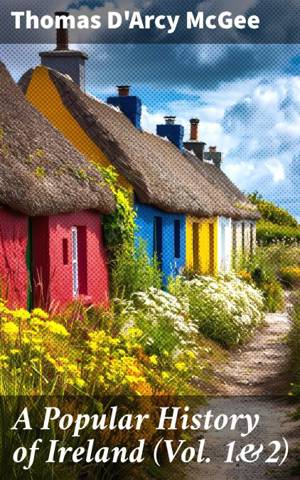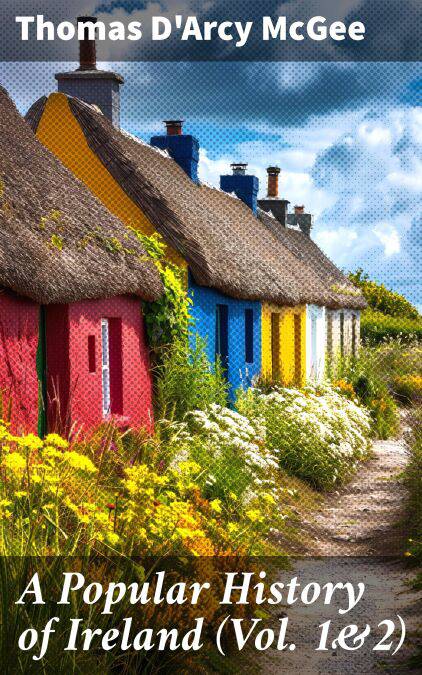
- Afhalen na 1 uur in een winkel met voorraad
- Gratis thuislevering in België vanaf € 30
- Ruim aanbod met 7 miljoen producten
- Afhalen na 1 uur in een winkel met voorraad
- Gratis thuislevering in België vanaf € 30
- Ruim aanbod met 7 miljoen producten
Zoeken
A Popular History of Ireland (Vol. 1&2) E-BOOK
From the Earliest Period to the Emancipation of the Catholics (Complete Edition)
Thomas D'Arcy McGee
E-book | Engels
€ 1,99
+ 1 punten
Omschrijving
In "A Popular History of Ireland (Vol. 1 & 2)", Thomas D'Arcy McGee presents a comprehensive and accessible recounting of the Irish experience, spanning from ancient times to the 17th century. Employing a narrative style that melds vivid storytelling with scholarly rigor, McGee adeptly interweaves historical events with cultural insights, providing readers with a multifaceted view of Irish identity. His work reflects the Romantic literary movement's emphasis on nationalism and the valorization of the folk narrative, all while positioning Ireland's history within the broader context of European developments. Thomas D'Arcy McGee, an influential Irish nationalist politician and advocate of Irish unity, was profoundly shaped by the tumultuous socio-political landscape of his time. Born in 1825 in Ireland and later emigrating to Canada, McGee's experiences as an immigrant and his commitment to the Irish cause fueled his desire to document and commemorate the rich heritage of his homeland. His scholarship was driven not only by a need for preservation but also by a vision of aspiration for Ireland's future as a sovereign entity. This work is highly recommended for those seeking a deeper understanding of Ireland'Äôs past through a lens that celebrates its cultural richness and complexity. Scholars, students, and general readers alike will find McGee's compelling narrative an essential resource that bridges the gap between scholarly history and popular understanding.
Specificaties
Betrokkenen
- Auteur(s):
- Uitgeverij:
Inhoud
- Aantal bladzijden:
- 910
- Taal:
- Engels
Eigenschappen
- Productcode (EAN):
- 8596547775683
- Verschijningsdatum:
- 11/12/2023
- Uitvoering:
- E-book
- Beveiligd met:
- Digital watermarking
- Formaat:
- ePub

Alleen bij Standaard Boekhandel
+ 1 punten op je klantenkaart van Standaard Boekhandel
Beoordelingen
We publiceren alleen reviews die voldoen aan de voorwaarden voor reviews. Bekijk onze voorwaarden voor reviews.











